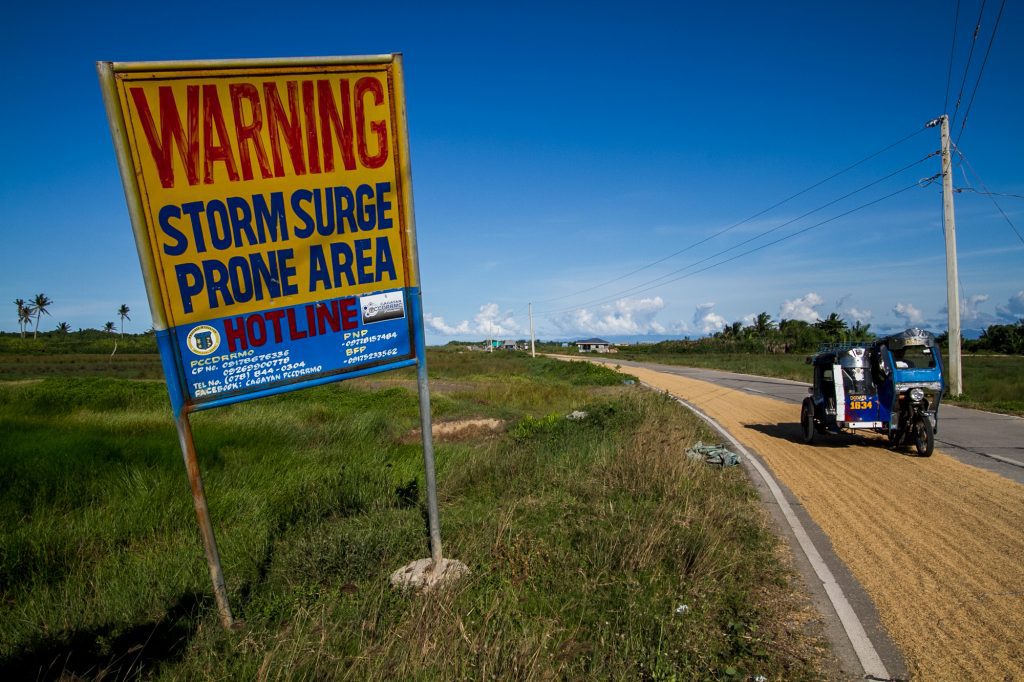
Pro-environment activists on August 18 have encouraged the Philippine government and various sectors to “translate the climate crisis” into the language of the masses.
The activists said the poor communities that are most vulnerable to the impacts of climate change “must fully understand what are the threats, who are accountable, and how to act on them.”
They made the call during an online discussion on the recent UN climate panel report that revealed that humans are unlikely to prevent global warming of 1.5 degrees Celsius by 2040.
John Leo Algo of the group Aksyon Klima said communicating the climate crisis to the communities “is more than just making it more relatable in terms of language.”
“We need to make it relatable for the public, especially the poor and vulnerable communities, in terms of content,” he said.
Algo admitted that the challenge is translating technical terms, which explain climate change, into the language that the masses would appreciate.
The Intergovernmental Panel on Climate Change’s (IPCC) full report, which was released on August 9, has nearly 4,000 pages with highly technical and specialized terminologies.
The new report, considered the most comprehensive summary of the physical science of climate change, was approved by 195 governments.
Lawyer Angela Ibay of the World Wild Fund for Nature (WWF) Philippines said pro-environment organizations have to find a way on how to communicate the climate crisis to the general public.
“Whoever we interact with, we use the language that speaks to them, and be able to ensure that they understand that every action that they do actually makes a difference,” she said.
Marinel Ubaldo, the Philippine Country Coordinator to the 2021 UN Conference of Youth, said the government must institutionalize the integration of climate change into academic subjects in schools and universities.
“We must also contextualize the climate crisis so people in the community would relate to it. Discuss it using the very experience of the people in the poor communities,” she said.

Rodne Galicha of Living Laudato Si Philippines said it is also important to make the public understand that they are suffering because of “decades of environmental plunder perpetrated by huge capitalists that are also the major polluters.”
“We need to have a drastic, more progressive, radical action to face this big challenge but on top of that, again, we need to make it known who is accountable for this looming catastrophe,” he said.
China, the European Union, and the United States – the world’s top three greenhouse gas emitters – contribute at least 41.5 percent of the total global carbon emissions while the bottom 100 countries only account for 3.6 percent.
The energy sector remains the biggest carbon emitter because of the use of dirty energy sources such as coal and other fossil fuels.
The IPCC report said that “it is unequivocal” that human influence has warned the climate “at a rate that is unprecedented.”
Lawyer Alaya de Leon of Parabukas said the Philippine government must exercise inclusivity in terms of how it governs the country’s disaster planning, prevention, and recovery.
“[It must] include vulnerable sectors, indigenous peoples, and women in the decision-making and planning… We can address pandemic recovery and also our climate responses and green recovery together,” she said.
Albert Magalang, head of the Climate Change Division of the country’s environment department, said there is an “immediate necessity of rethinking and re-engineering the current related policies towards coherence and effectiveness of the overall national [climate] action led by the government.”
“In order to avoid the tipping point, we call for coherent and integrative climate and environmental action, noting that compliance to current business-as-usual policies alone will not solve climate change and environmental problems,” he said. – with reports from Miryam Tolentino.






0 Comments